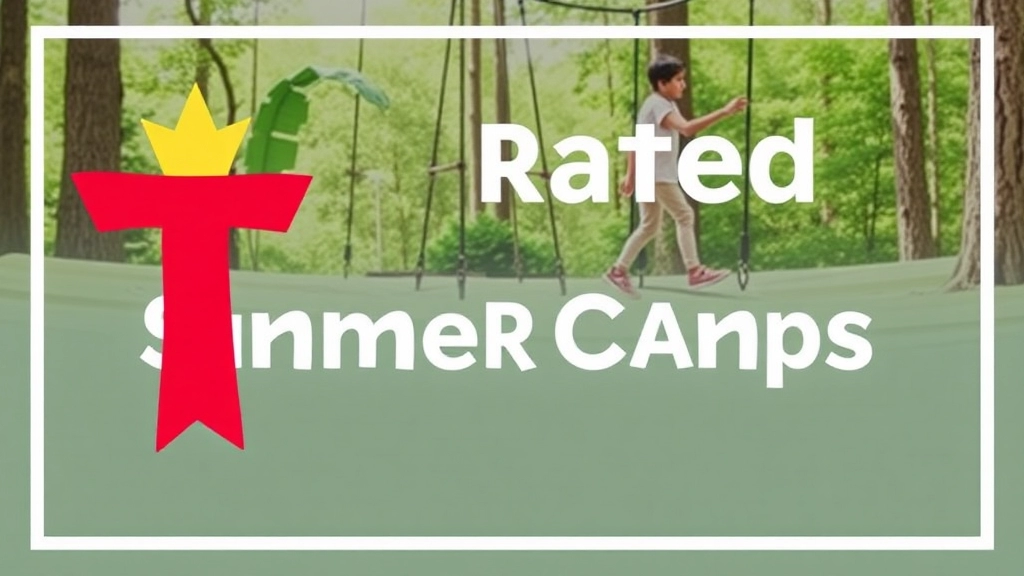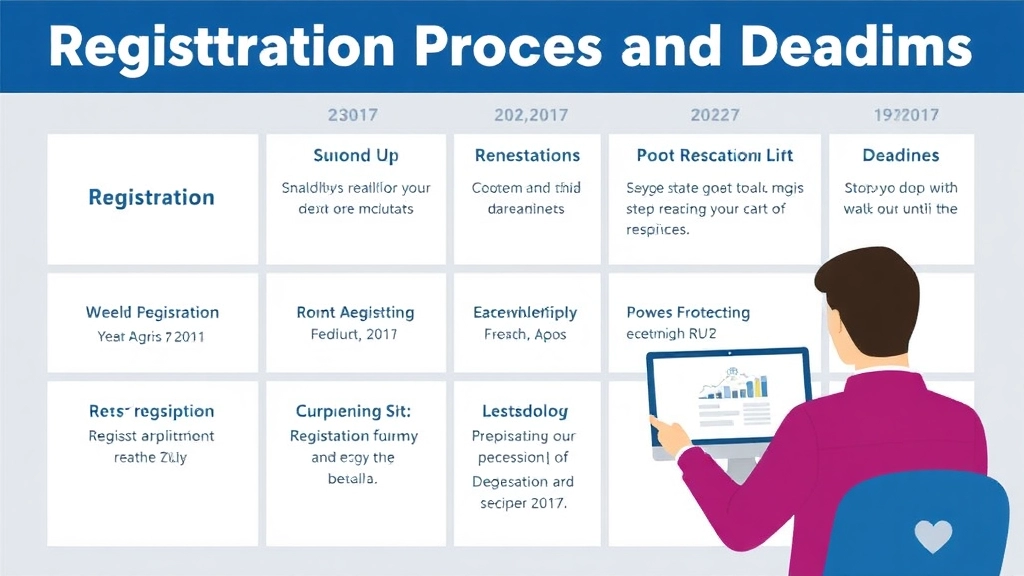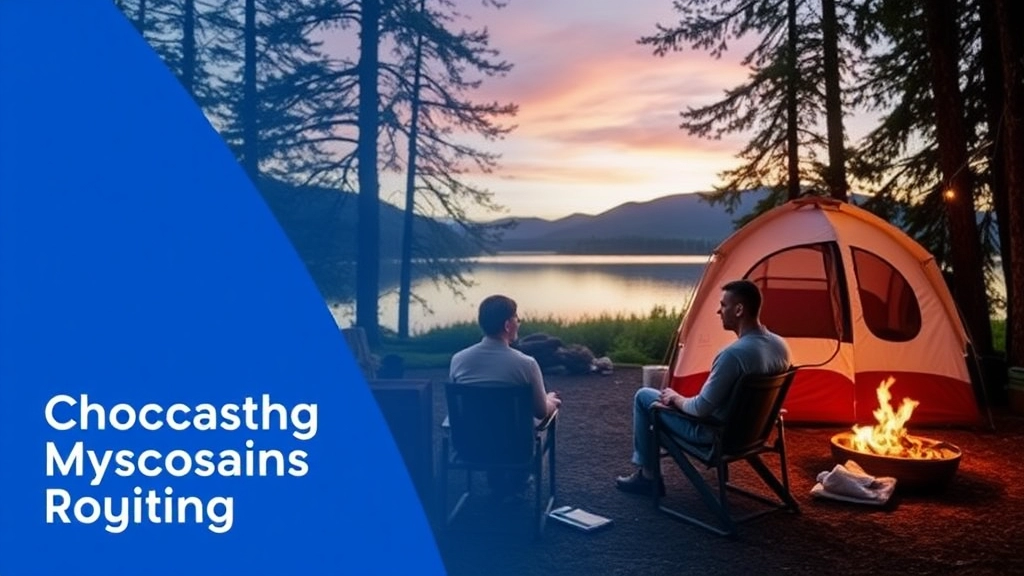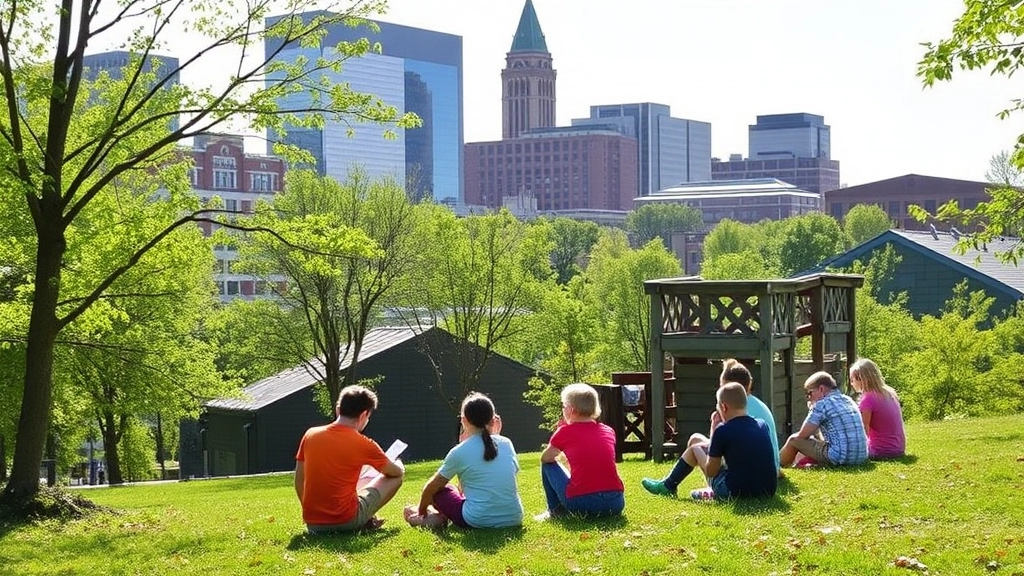Summer Camp Guide for Parents in Minneapolis
When summer arrives, parents in Minneapolis face the exciting yet daunting task of selecting the perfect summer camp for their children. With a myriad of options available, from traditional camps to specialty programs focused on arts, sports, and STEM, the decision can be overwhelming. This guide aims to simplify that process by providing a comprehensive overview of the types of camps available, top-rated options, and essential tips for choosing the right camp for your child.
We’ll delve into age-specific camp options, compare day camps versus overnight camps, and discuss the registration process and deadlines to ensure you don’t miss out. Safety is a top priority, so we’ll cover camp accreditation and the measures taken to keep your child safe. Additionally, we’ll explore the cost of camps and available financial assistance options, rounded off with real testimonials from parents and campers to give you a well-rounded perspective. Ready to find the best Minneapolis summer camp for your child? Let’s dive in!
Types of Summer Camps in Minneapolis
When summer rolls around, parents in Minneapolis start asking the big question: What type of summer camp is best for my child? Trust me, I’ve been there. The options can be overwhelming, but let’s break it down together.
Traditional Camps
First up, the classic summer camp experience. Think of those camps you see in moviesâcanoeing, arts and crafts, campfires, and maybe even a bit of archery. These camps offer a bit of everything and are great for kids who love variety. They’re usually packed with activities that keep the little ones busy and engaged from morning till night.
Day Camps
Not all kids (or parents) are ready for an overnight stay. Day camps are perfect for those who want the camp experience but prefer to come home at the end of the day. These camps often run from early morning until late afternoon and can cover a range of activities, from sports to arts to educational programs.
Specialty Camps
If your child has a particular passion or interest, specialty camps are the way to go. Minneapolis offers a plethora of these, focusing on:
- Arts Camps: For the budding artist, musician, or actor. These camps dive deep into creative skills and often culminate in a performance or exhibition.
- Sports Camps: Got a future athlete on your hands? Sports camps focus on specific sports like soccer, basketball, or even more niche activities like rock climbing and martial arts.
- STEM Camps: Science, Technology, Engineering, and Mathematicsâthese camps are for the curious minds who love to explore and innovate. Think robotics, coding, and science experiments.
Adventure Camps
For the thrill-seekers, adventure camps offer activities like hiking, rock climbing, and even zip-lining. These camps are all about pushing boundaries and exploring the great outdoors.
Academic Camps
Yes, learning can be fun in the summer too. Academic camps focus on subjects like math, science, and literature but in a more relaxed and engaging environment. These are great for kids who want to get ahead or catch up before the next school year.
Why This Matters
Choosing the right type of camp can make or break your child’s summer experience. It’s all about matching their interests and comfort levels with what the camp offers. And hey, don’t forget to involve your child in the decision-making process. After all, they’re the ones who will be spending their days there.
Quick Tips for Choosing the Right Camp
- Know Your Child’s Interests: Are they more into sports, arts, or science? This will help narrow down your options.
- Consider the Camp’s Reputation: Look for reviews and testimonials. Word of mouth can be incredibly telling.
- Check the Schedule: Make sure it fits with your family’s summer plans.
- Visit the Camp: If possible, visit the camp beforehand to get a feel for the environment and staff.
If you’re looking for some specific camp recommendations, check out our guide on Jacksonville Summer Camps for a comprehensive overview or explore the Top Summer Sports Camps in Jacksonville, FL for sports-focused options.
Top Rated Summer Camps for Kids

Alright, parents, let’s dive into the nitty-gritty of finding the best summer camps in Minneapolis for your kids. I get it – you want a camp that’s fun, safe, and worth every penny. So, let’s break it down.
Why Top Rated Camps Matter
You’re probably wondering, “Why should I care about top-rated camps?” Here’s the deal:
- Quality Programs: These camps have proven they deliver awesome experiences.
- Safety: They follow strict safety measures.
- Experienced Staff: They know how to handle kids and make the camp fun.
The Best of the Best
Let’s cut to the chase. Here are some of the top-rated camps in Minneapolis:
- Camp Tanadoona
- Why It’s Great: Offers a mix of outdoor adventures and creative activities.
- Age Range: 5-17 years.
- Special Features: Lake activities, archery, and arts and crafts.
- YMCA Camp Ihduhapi
- Why It’s Great: Known for its strong community vibe and diverse activities.
- Age Range: 7-15 years.
- Special Features: Climbing walls, canoeing, and team-building exercises.
- Minneapolis College of Art and Design (MCAD) Summer Camps
- Why It’s Great: Perfect for budding artists.
- Age Range: 5-18 years.
- Special Features: Digital art, painting, and sculpture workshops.
- Bakken Museum Summer Camps
- Why It’s Great: Top-notch for kids who love science and tech.
- Age Range: 6-14 years.
- Special Features: Robotics, coding, and hands-on experiments.
Real Stories, Real Experiences
Let me share a quick story. My neighbour’s kid, Jake, went to Camp Tanadoona last summer. He came back with a newfound love for archery and a bunch of new friends. His mum couldn’t stop raving about how much more confident he seemed.
How to Choose the Right Camp
Here’s a quick checklist:
- Interests: Does the camp cater to your kid’s hobbies?
- Location: Is it convenient for drop-off and pick-up?
- Reviews: What are other parents saying?
- Cost: Does it fit your budget? (More on financial assistance options later.)
Choosing a top-rated summer camp can make all the difference in your kid’s summer experience. So, do your homework, read reviews, and trust your gut. Your kid’s next great adventure is just a registration away.
Got any questions or need more info? I’m here to help!
Specialty Camps: Arts, Sports, and STEM
Alright, let’s dive into the nitty-gritty of specialty camps in Minneapolis. Whether your kid is an artist, a sports fanatic, or a budding scientist, there’s a camp designed just for them. Specialty camps are where your child can hone in on their interests and talents, making the summer not just fun, but also super productive.
Why Choose Specialty Camps?
Parents often worry about keeping their kids engaged during the summer. Will they learn something new? Will they make friends with similar interests? These are common concerns. Specialty camps are the answer. They focus on specific skills and interests, providing a tailored experience that’s both educational and enjoyable.
Arts Camps
Is your child the next Picasso or Spielberg? Arts camps in Minneapolis cover a wide range of creative outlets:
- Visual Arts: Drawing, painting, and sculpture.
- Performing Arts: Drama, dance, and music.
- Digital Arts: Photography, video production, and graphic design.
These camps usually feature experienced instructors who guide kids through various projects, helping them to develop their artistic skills. Plus, they often end with a showcase or exhibition, so you can see all the amazing work your child has done.
Sports Camps
Got a little athlete on your hands? Sports camps are perfect for kids who love to stay active. Here’s what you can expect:
- Team Sports: Football, basketball, and soccer.
- Individual Sports: Tennis, swimming, and gymnastics.
- Adventure Sports: Rock climbing, kayaking, and mountain biking.
These camps focus on improving skills, teamwork, and physical fitness. Coaches are usually professionals or college athletes who know how to keep kids motivated and engaged.
STEM Camps
If your kid is more into science and tech, STEM camps are a fantastic option. These camps cover:
- Science: Chemistry, biology, and environmental science.
- Technology: Coding, robotics, and game design.
- Engineering: Building projects, mechanical design, and problem-solving.
- Mathematics: Fun math challenges and puzzles.
STEM camps are designed to be hands-on and interactive, making learning fun. They often include exciting experiments and projects that kids can’t stop talking about.
Real Stories
Let me share a quick story. My neighbour’s son, Timmy, was always tinkering with gadgets. Last summer, he attended a robotics camp, and now he’s building his own robots at home. His parents were thrilled to see him so passionate and engaged. That’s the magic of specialty camps.
Choosing the Right Specialty Camp
Here are some quick tips to help you choose the right camp:
Age-Specific Camp Options

Wondering which summer camp is the best fit for your kid’s age?
You’re not alone.
Finding the perfect camp can be a bit of a maze.
You want something that’s age-appropriate, engaging, and maybe even educational.
And let’s be real—no one wants to end up with their 5-year-old in a camp designed for teenagers.
So, let’s break it down.
Camps for Toddlers and Preschoolers (Ages 3-5)
These camps are all about fun and discovery.
Think arts and crafts, simple sports, and lots of playtime.
Perfect for little ones who are just starting to explore the world.
- Activities: Storytime, painting, basic sports
- Duration: Usually half-day sessions
- Supervision: High staff-to-child ratio for extra care
Camps for Elementary School Kids (Ages 6-10)
This age group is where things get exciting.
Kids are curious, energetic, and ready to try new things.
You’ll find camps that offer a mix of activities—from science experiments to outdoor adventures.
- Activities: Science projects, swimming, team sports
- Duration: Full-day or half-day options
- Supervision: Moderate staff-to-child ratio
Camps for Tweens (Ages 11-13)
Tweens are at that in-between stage.
They want independence but still need guidance.
Specialty camps like robotics, coding, and more intense sports camps are big hits here.
- Activities: Robotics, advanced sports, coding
- Duration: Mostly full-day, some overnight options
- Supervision: Balanced supervision with some independence
Camps for Teens (Ages 14-17)
Teens are looking for something more challenging.
They want to build skills, make friends, and maybe even prepare for future careers.
Leadership camps, internships, and high-adventure camps are ideal.
- Activities: Leadership training, internships, high-adventure activities
- Duration: Full-day, overnight, or multi-week sessions
- Supervision: Lower staff-to-teen ratio, more independence
Why Age-Specific Camps Matter
Choosing the right camp for your child’s age isn’t just about keeping them entertained.
It’s about ensuring they’re in an environment that’s safe and supportive.
And let’s not forget—age-specific camps often tailor their activities to match developmental stages.
This means your kiddo will get the most out of their summer experience.
Final Thoughts
Finding the right age-specific camp can make all the difference.
From toddlers to teens, there’s something out there for every age group.
So, do a bit of research, ask around, and pick the best fit for your child.
Because a great summer camp experience is one they’ll remember forever.
And hey, if you need more tips on choosing the perfect camp, check out our other guides on Top Rated Summer Camps for Kids and Specialty Camps: Arts, Sports, and STEM.
Happy camping!
Day Camps vs. Overnight Camps
Are you torn between sending your kid to a day camp or an overnight camp? Trust me, you’re not alone. This is one of the most common dilemmas parents face when planning summer activities for their children. Let’s break it down and see what works best for you and your family.
Day Camps: The Daily Adventure
Day camps are perfect if you’re looking for a structured yet flexible option. Your child gets to enjoy all the fun activities and learning experiences during the day and returns home by evening. Here are some benefits:
- Routine and Comfort: Kids stick to their daily routines and sleep in their own beds.
- Flexibility: Ideal for parents who want to spend evenings and weekends with their children.
- Cost-Effective: Generally, day camps are less expensive than overnight camps.
- Local Exploration: Your child gets to explore local parks, museums, and other attractions.
Day camps are a great fit for younger kids or those who might not be ready for the overnight experience. They also offer specialised programs in arts, sports, and STEM, giving your child the chance to dive into their interests.
Overnight Camps: The Full Immersion
On the flip side, overnight camps offer a more immersive experience. Kids stay at the camp for several days or even weeks, fully engaging in the camp environment. Here’s why some parents and kids love it:
- Independence: Kids learn to be more self-reliant and confident.
- Friendships: Stronger bonds are formed when kids spend more time together.
- Unique Experiences: Activities like night hikes, campfires, and sleepovers add a magical touch.
- Skill Development: More time means more opportunities to develop new skills and hobbies.
Overnight camps are a fantastic option for older kids or those looking for a more in-depth experience. They often offer specialised programs too, so your child can still focus on their favourite activities.
Making the Choice: What’s Best for Your Child?
Here’s a quick checklist to help you decide:
- Age and Maturity: Is your child ready to spend nights away from home?
- Interests: Does the camp offer activities that align with your child’s interests?
- Budget: What can you afford? Remember, there are financial assistance options available.
- Duration: How long do you want your child to be at camp?
Real Stories: Parents and Kids Weigh In
I remember chatting with Sarah, a mum who was unsure about sending her 10-year-old to an overnight camp. She shared, “I was worried about him being away for so long, but he came back more confident and independent. It was the best decision we made.”
On the other hand, Tom, a dad of a 7-year-old, opted for a day camp. “It was perfect for us. He got to enjoy all the activities and we still had our family time in the evenings.”
Whether you choose a day camp or an overnight camp, the key is to find the right fit for your child and your family. Both options have their unique advantages and can provide unforgettable experiences. For instance, if your child loves exploring museums, consider a summer camp at natural history museums. On the other hand, if your child is into sports, you might want to look into top summer sports camps in Jacksonville, FL. So, what will it be? Day camp or overnight camp? The choice is yours, and either way, it’s going to be an adventure your child will cherish.
Registration Process and Deadlines

Alright, let’s get into the nitty-gritty of the registration process and deadlines for summer camps in Minneapolis.
First things first, when should you register?
ASAP.
Summer camps fill up fast, especially the top-rated ones.
Why?
Because everyone wants their kid to have an amazing summer.
How do you register?
Most camps have an online registration system.
Here’s a quick rundown:
- Visit the camp’s website.
- Find the registration section.
- Fill out the forms.
- Pay the fee.
Simple, right?
But here’s the kicker: Deadlines.
Miss them, and you’re out of luck.
So, when are these deadlines?
- Early Bird Registration: Usually opens in January and closes in March. You might get a discount if you sign up early.
- Regular Registration: Runs from April to May.
- Late Registration: June, if there are spots left. But don’t count on it.
Pro Tip: Set a reminder on your phone for these deadlines.
What about waitlists?
If the camp is full, you can join a waitlist.
Here’s how that works:
- Sign up for the waitlist.
- If a spot opens up, you’ll be notified.
- You’ll usually have a short window to accept the spot.
Quick story:
Last summer, my neighbour missed the early bird deadline for a popular STEM camp. She got on the waitlist but didn’t get a spot until the week before camp started. Her kid was bummed out all summer.
Moral of the story?
Don’t procrastinate.
What about paperwork?
You’ll need to provide:
- Medical forms
- Emergency contacts
- Special needs information
Keep it all handy.
And fees?
- Registration fees are usually non-refundable.
- Some camps offer payment plans.
Look for financial assistance options if you need them. (More on that later)
Safety Measures and Camp Accreditation
Alright, let’s talk about something that’s on every parent’s mind when summer rolls around: safety measures and camp accreditation. When you’re sending your kids off to a summer camp in Minneapolis, you want to be absolutely sure they’re in safe hands. So, what should you be looking for?
Why Safety Measures Matter
First off, let’s get real. Every parent worries about their child’s safety. Whether it’s a scraped knee or something more serious, you want to know that the camp staff are prepared for anything. Here are some key questions you might be asking:
- Are the staff trained in first aid and CPR?
- What’s the camper-to-staff ratio?
- How do they handle emergencies?
These are not just idle questions; they’re crucial for peace of mind. And let’s face it, if you’re not comfortable with the answers, it’s a red flag.
Accreditation: The Gold Standard
Now, let’s talk about accreditation. It’s like that gold star you got in school, but way more important. Accredited camps have to meet stringent safety and quality standards. Look for camps accredited by the American Camp Association (ACA). This isn’t just a rubber stamp; it means the camp has been vetted for:
- Health and safety protocols
- Staff training and qualifications
- Program quality
What to Look For
When you’re vetting a camp, here’s a checklist to keep handy:
- Background Checks: Ensure all staff have undergone thorough background checks.
- Health Policies: Make sure the camp has clear health policies, especially in the age of COVID-19.
- Emergency Plans: Ask about their emergency action plans. Do they have a nurse or medical professional on-site?
- Facility Inspections: Accredited camps often undergo regular inspections to ensure they meet safety standards.
Real Talk: Stories from the Trenches
Let me share a quick story. Last summer, my friend sent her son to a camp that wasn’t accredited. Everything seemed fine until he came home with a nasty rash. Turns out, the camp didn’t have proper sanitation protocols. Lesson learned: always go for accredited camps. It’s worth the peace of mind.
Internal Links for More Info
For more on ZKids Summer Camp’s Fun and Safe Programs, check out our detailed guide. If you’re curious about Essential Safety Guidelines for Summer Camps, we’ve got you covered there too.
Tips for Choosing the Right Camp

Worried about picking the right summer camp for your kids in Minneapolis?
You’re not alone.
It’s a big decision, and you want to get it right.
Here’s how you can nail it.
Know Your Kid’s Interests
First things first, what does your kid love?
- Arts?
- Sports?
- STEM?
Find a camp that aligns with their passions.
It’s a no-brainer, but you’d be surprised how many parents overlook this.
Check the Camp’s Reputation
A camp’s reputation speaks volumes.
- Google reviews.
- Parent testimonials.
- Word of mouth.
Don’t skip this step.
A camp with glowing reviews is usually a safe bet.
Accreditation Matters
Look for camps accredited by the American Camp Association (ACA).
This means they meet high standards for safety, staff qualifications, and programme quality.
Safety First
Safety is non-negotiable.
- What’s the staff-to-camper ratio?
- Are the counsellors trained in first aid?
- What’s their emergency protocol?
These are questions you need answers to.
Day Camp or Overnight Camp?
Consider your child’s comfort level.
- Day camps are great for younger kids or first-timers.
- Overnight camps offer a more immersive experience but might be better for older kids.
Budget Wisely
Camps can be pricey.
- Look for financial assistance options.
- Check if they offer sibling discounts.
- See if there are early bird rates.
Don’t break the bank if you don’t have to.
Visit the Camp
Nothing beats seeing it with your own eyes.
- Take a tour.
- Meet the staff.
- Check out the facilities.
This gives you a real feel for the place.
Ask for a Daily Schedule
What will your kid be doing all day?
- Structured activities?
- Free play?
- Special events?
Make sure the schedule aligns with what you’re looking for.
Talk to Other Parents
Word of mouth is powerful.
- Join local parenting groups.
- Ask for recommendations.
- Get the inside scoop.
Trust Your Gut
At the end of the day, trust your instincts.
If something feels off, it probably is.
Choosing the right camp can feel overwhelming, but with these tips, you’re well on your way to making a great choice.
And remember, it’s all about finding a place where your kid will be happy and safe.
Happy camp hunting!
Cost and Financial Assistance Options
Worried about the cost of summer camps in Minneapolis? You’re not alone. Many parents are concerned about how to afford quality summer experiences for their kids without breaking the bank. Let’s break it down and make it simple.
Understanding the Costs
First off, let’s talk numbers. Summer camp costs can vary widely depending on the type of camp, duration, and what’s included. Here’s a quick rundown:
- Day Camps: Generally range from £100 to £500 per week.
- Overnight Camps: These can set you back anywhere from £300 to £1,500 per week.
- Specialty Camps (Arts, Sports, STEM): Expect to pay a bit more, often between £200 to £800 per week.
What’s Included?
When you’re looking at these numbers, consider what’s included in the price:
- Meals and Snacks: Are they provided, or will you need to pack them?
- Activities and Materials: Does the camp supply all the equipment and materials for activities?
- Transportation: Is there a pick-up and drop-off service, or will you need to arrange your own?
Financial Assistance Options
Now, let’s get to the good stuffâhow to make camp affordable. Here are some ways to lighten the financial load:
- Scholarships and Grants: Many camps offer scholarships based on need or merit. Check the camp’s website or contact them directly for details.
- Early Bird Discounts: Sign up early to snag a discount. Many camps offer reduced rates for early registrations.
- Sibling Discounts: If you’re sending more than one child, ask about sibling discounts.
- Payment Plans: Some camps allow you to spread the cost over several months.
- Employer Assistance: Some companies offer subsidies or reimbursements for child care, including summer camps. Check with your HR department.
- Community Programs: Local community centres and non-profits often have lower-cost camp options or financial aid programs.
Real Stories
Let me share a quick story. Last summer, my friend Sarah was worried about affording a quality camp for her two kids. She found a STEM camp that offered a sibling discount and a scholarship program. By applying early and securing a scholarship, she managed to send both kids to camp without straining her budget. They had an amazing time, and she didn’t have to stress about the cost.
Making the Decision
When choosing a camp, don’t just look at the price tag. Consider the value you’re getting:
- Quality of Staff: Are the counsellors experienced and well-trained?
- Safety Measures: Is the camp accredited and following safety protocols?
- Reputation: What do other parents and campers say about the camp?
For more tips on choosing the right camp, check out our St. Louis Summer Camps Guide for Parents.
Parent and Camper Testimonials
Real Questions, Real Concerns
Wondering if a summer camp is worth it?
Worried about your kid’s experience?
Let’s dive into real stories from parents and campers who’ve been there, done that.
Parents’ Perspectives
Jane’s Take on Safety
“I was super anxious about sending my 8-year-old to an overnight camp. Safety was my top concern. But the camp’s accreditation and safety measures put my mind at ease. They had a nurse on-site 24/7 and strict check-in procedures.”
Mark’s Budget Woes
“Summer camps can be pricey, right? I was worried about the cost. But many camps offer financial assistance and scholarships. We found one that fit our budget without compromising on quality.”
Campers’ Stories
Emily’s Art Adventure
“I’m Emily, and I love painting. My parents sent me to an arts camp in Minneapolis. It was amazing! We had professional artists teach us. I made new friends who love art as much as I do.”
Jake’s Sports Camp Experience
“Hey, I’m Jake. I went to a sports camp last summer. I was nervous at first. But the coaches were awesome. I learned so much about teamwork and made friends for life.”
Why Testimonials Matter
Hearing from those who’ve been through it can help you make an informed decision. It’s not just about reading brochures or slick marketing. Real experiences offer genuine insights.
Final Thoughts
Choosing the right camp can feel overwhelming. But hearing from parents and campers who’ve walked the path can make it easier. Their stories can guide you, reassure you, and maybe even inspire you. So, take their words to heart. And make a choice that feels right for your family.
Ready to hear more? Check out our section on affordable low-cost summer camps to find the perfect fit.
Keywords to Remember
- Summer camp testimonials
- Parents’ perspectives on summer camps
- Campers’ stories
Got questions or concerns? You’re not alone. And you’re in the right place to find answers. For more information, visit our essential guidelines for summer camp safety.
Frequently Asked Questions (FAQs) about Minneapolis Summer Camps
What are the benefits of choosing a top-rated summer camp?
Top-rated camps offer quality programs, adhere to strict safety measures, and have experienced staff who know how to create a fun and engaging environment for kids.
What are some of the top-rated summer camps in Minneapolis?
Some of the best camps include:
- Camp Tanadoona: Outdoor adventures and creative activities for ages 5-17.
- YMCA Camp Ihduhapi: Strong community vibe and diverse activities for ages 7-15.
- MCAD Summer Camps: Art-focused camps for ages 5-18.
- Bakken Museum Summer Camps: Science and tech camps for ages 6-14.
How do I choose the right camp for my child?
Consider your child’s interests, the camp’s location, reviews from other parents, and whether the camp fits your budget. Use a checklist to compare different camps based on these factors.
What age groups do these camps cater to?
Camps are available for various age groups:
- Toddlers and Preschoolers (Ages 3-5): Focus on fun and discovery with high supervision.
- Elementary School Kids (Ages 6-10): Mix of science, sports, and outdoor activities.
- Tweens (Ages 11-13): Independence with guidance, specialized camps like robotics and coding.
- Teens (Ages 14-17): Leadership training, internships, and high-adventure activities.
When should I register for summer camps?
Register as soon as possible. Early bird registration usually opens in January and closes in March. Regular registration runs from April to May, and late registration in June if spots are available.
How do I register for a summer camp?
Most camps have an online registration system. Visit the camp’s website, find the registration section, fill out the forms, and pay the fee. Be mindful of deadlines to avoid missing out.
What if the camp is full?
You can join a waitlist. If a spot opens up, you’ll be notified and usually have a short window to accept the spot.
What paperwork is required for registration?
You’ll need to provide medical forms, emergency contacts, and any special needs information. Keep all documents handy.
Are there financial assistance options available?
Yes, many camps offer financial assistance, sibling discounts, and early bird rates. Check the camp’s website for specific details.
How can I ensure the camp is safe for my child?
Look for camps accredited by the American Camp Association (ACA). Ask about the staff-to-camper ratio, first aid training, and emergency protocols. Visiting the camp and meeting the staff can also provide peace of mind.
Should I choose a day camp or an overnight camp?
Consider your child’s comfort level. Day camps are great for younger kids or first-timers, while overnight camps offer a more immersive experience suitable for older kids.
How can I find more information about different camps?
Check out our guides on Top Rated Summer Camps for Kids and Specialty Camps: Arts, Sports, and STEM for more detailed information.
Happy camping!
References
-
American Camp Association (ACA)
-
Camp Tanadoona
-
YMCA Camp Ihduhapi

